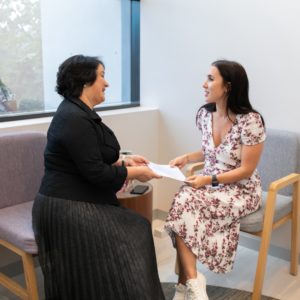Ovulation tracking is a simple process that helps you identify the days on which you are most fertile. During your ‘fertile window’ you should try to have intercourse every couple of days to maximise your chances of conception.
An effective way to track your menstrual cycle is by using an Ovulation Calculator. Your cycle length is the number of days between your periods. While the average is 28 days, it can vary from around 23 to 35 days, so you may need to track a few cycles to work out your fertile window accurately.
To use the Ovulation Calendar, select your usual cycle length from the dropdown box then choose the date on the calendar when your last period started. The ovulation calculator will then estimate your next fertility window, and the one after it. Soon, I will be launching my conceive please ovulation tracking app, which is the only app that uses medically proven advice and will make this process even easier for you!
How do I calculate ovulation?
The length of your menstrual cycle dictates the day you ovulate. Subtract 14 days from the end of your current cycle to determine the approximate day of ovulation. So for example, this is day 14 on a 28-day cycle. Your best chance of conception is from having intercourse just before your ovulation – 1-2 days before you ovulate.
What are common signs of ovulation?
There are a few common symptoms to look out for. Your discharge will become clear and stretchy, resembling raw egg white, you may have tender breasts and an increased sex drive, and your body temperature will rise slightly and stay elevated during your most fertile days.
What if my menstrual cycle is irregular?
If your cycle varies significantly from one month to the next, try ovulation tracking or ovulation urine tests (which work similarly to a pregnancy test). You can also seek advice from your GP or a fertility specialist like Dr Raewyn.
When should I see a fertility specialist?
As a general rule, if you’re under 35 years old and have been trying for 12 months or more to get pregnant, it’s time to seek the advice of a fertility specialist to discuss if you might need some IVF treatments. If you’re over 35 years of age, seek advice after six months of trying to conceive.



